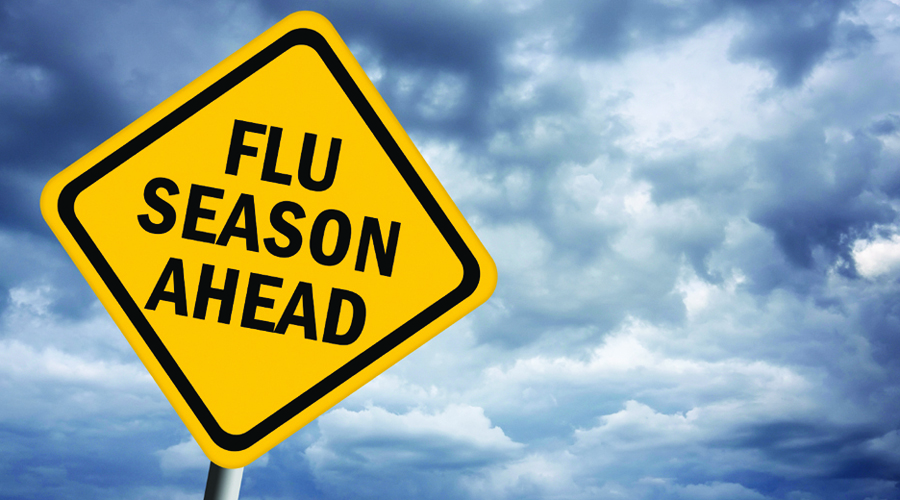It’s that time of year again in Lake Travis when even the healthiest kiddos (and parents) get sidelined by cold and flu season. In fact, the flu is already in Texas. Can I hear a unanimous “ugh?” UGH.
That’s why we’re chatting with Lake Travis pediatrician Dr. Danielle Grant of Beansprout Pediatrics to get her advice about the best ways to keep our kiddos healthy. She’s a mom of three youngsters herself, so she totally understands how one child with a cold can bring an entire household to a screeching halt. And that’s not fun for anyone!
From flu shots to Tamiflu to the cedar fever misnomer, here are 5 things you should know about cold and flu season:
The first question you might ask heading into cold and flu season is do you vaccinate against the flu? Every year you hear rumors about different “strains” of the flu surfacing, so you and your kiddos may catch it anyway, even if everyone has been vaccinated for it. Should you get a flu shot?
Dr. Grant’s advice is, “without hesitation, yes!” And here’s why.
“The flu shot is important both on an individual and a community level. The flu is serious because it can cause life threatening illness, hospitalization and even death. By receiving a flu vaccine, an individual reduces their risk of getting the flu and therefore, complications from the flu. This in turn, decreases the opportunity for the flu to be transmitted to others, which is an important public health aspect to consider. To sum it up, the flu vaccine helps protect you from getting sick from the flu. Protecting yourself, in turn, protects those around you.”
Aside from vaccinations, what else can you do to protect your family from colds, viruses and the flu? Dr. Grant emphasizes simple steps that you already know, but kiddos on-the-go, especially when they’re in school, may need gentle reminders. Washing hands and covering coughs are two of the biggest things they can do to prevent spreading icky germs.
What are the proper ways to wash hands and cover a cough? Seriously, the next time you wash your hands today, start counting and see if you’re doing it correctly. You may surprised.
The proper way for you to wash hands means lathering them with soap for at least 20 seconds, scrubbing the back of hands, under the nails and between fingers too. The “lathering” process should be done away from running water, so the water doesn’t immediately rinse off the soap.
Covering a cough in an ideal world would be done with a tissue or paper towel, but if that’s not readily available, cough into the crook of your arm and/or your sleeve, not into your hands.
How can you differentiate allergies from a cold or the flu? In Austin, a city where it seems like allergies are always in season thanks to certain flowers, blooms and changes in humidity, it’s hard to tell the difference between symptoms.
Dr. Grant explains that our environment makes it hard to escape allergies, “especially if a patient is susceptible to multiple allergens that occur through multiple and back to back seasons.”
“Colds tend to come on gradually, sometimes with fever, and usually go away in a week or so,” explains Dr. Grant. “Allergies can come on suddenly and linger for weeks and even months. Fever never accompanies allergies unless there is a secondary infection that resulted. Therefore the term ‘cedar fever’ is a misnomer, as fever does not accompany allergies.”
If you’ve done your best to protect your family from the flu, but someone still gets it, what happens next? Dr. Grant recommends Tamiflu per the CDC and AAP guidelines for the specific flu season at hand.
Dr. Grant explains, “Patients considered at increased risk for flu complications, such as patients with chronic illnesses like diabetes, asthma, and neuromuscular conditions, should receive Tamiflu to try to minimize risk for serious and life-threatening illness. We also recommend Tamiflu for patients under 2-years-old since this population is considered at risk for complications from the flu. We follow similar guidelines for preventative doses of Tamiflu.”
Beansprout Pediatrics has been in the Lake Travis area (off Hwy 71) for five years and Dr. Grant says she really enjoys living and working here. “One of the things I love most is to be able to take care of our community’s children and to see them out and about on a daily basis. There is nothing more rewarding!”
Post image via Creative Commons, One Way Stock on Flickr.
